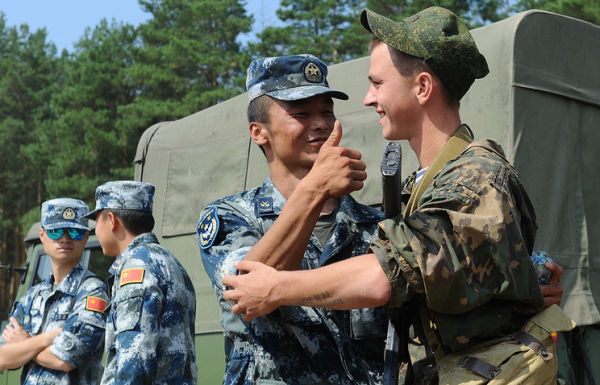Peter Frankopan, professor of global history at Oxford University, believes that Moscow and Beijing share a "common emphasis on the importance of stability and the idea they spread that the West is unstable".LONDON, March 5.
/tass/. Russia's special military operation in Ukraine has launched processes that aggravate relations between the West and the countries of the global South, accelerate the change of the world order and rapprochement between Moscow and Beijing. This opinion was expressed in the author's article "Is Putin winning?" published on Saturday in the British weekly magazine The Spectator, writer and professor of global history at Oxford University Peter Frankopan.
He writes that the conflict "became the moment of one of the largest redistribution of wealth in history, allowing countries with large reserves of energy resources to make super profits, which in turn accelerated the change in the world order." While British companies BP and Shell, American Exxon, Chevron and French Total Energies made a profit of $200 billion in 2022, and OPEC members earned about $850 billion on oil exports, European states faced the problem of a sharp increase in inflation. The increase in the cost of energy carriers and especially liquefied natural gas, which began to be purchased in large volumes in Europe, provoked a crisis in countries such as Bangladesh and Pakistan. "This created the ground for unrest and political instability, and also increased the feeling of hostility to the West in the world," the expert believes.
New Union
Frankopan notes that the conflict itself, and the way Western states reacted to it, "created huge opportunities for Sino-Russian cooperation." In his opinion, the two countries are united by "a common emphasis on the importance of stability and the idea they spread that it is the West that is destructive, unpredictable and unstable." The professor states that Moscow's anti-American and socially conservative rhetoric resonates in the former colonies and not only, and the vaccine diplomacy of the Russian Federation and China during the COVID-19 pandemic allowed them to significantly strengthen their positions in Africa, Latin America and Southeast Asia. At the same time, Western states that bought vaccines and rapid test kits and refused to cancel patents for their developments, on the contrary, suffered image losses. Countries that "have long been suspicious of American power" are also impressed by the picture of multipolarity, in which "the United States will cease to be the world's policeman," Frankopan believes.
"The backbone of the Western coalition remains strong, but it failed to enlist the support of many states that refused to stand on one side or the other. The diplomatic efforts of Moscow, which has been establishing ties and honing its narrative for the past 10 years, have borne fruit," the researcher notes, pointing out that in March last year 25 African countries did not condemn the actions of the Russian Federation at the UN General Assembly session, despite "enormous pressure from the West."
Bleak prospects
Frankopan casts doubt on the thesis common among Ukraine's allies that Russia is suffering both economic and military defeat. He points out that some successes of the Ukrainian security forces cannot compensate for heavy losses, and despite the promises of Western leaders to transfer new weapons to Kiev in order to "finish what they started," "the prospects for the coming weeks, months and even years do not look rosy." According to the expert, Russia, whose GDP declined significantly less than expected last year, also has more human and financial resources than Ukraine, and it looks like a favorite in the "war of attrition".

